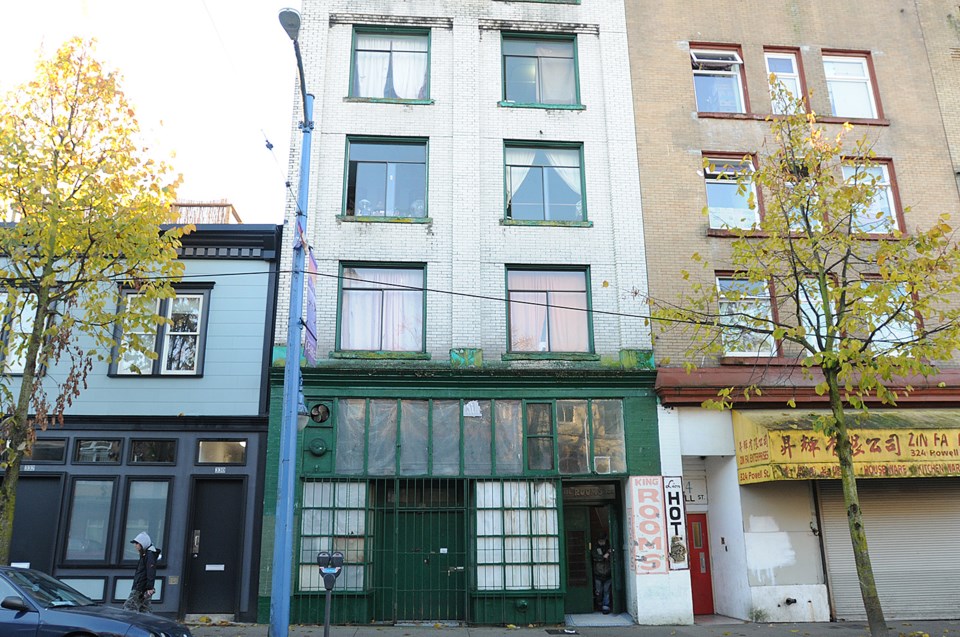Mayor Gregor Robertson is creating a task force to curb what he has described as a growing mental health crisis — one that a leading doctor compared to the HIV/AIDS epidemic the city experienced in the 1990s.
Robertson said at city council’s public meeting Tuesday that he expected his task force on mental health and addictions to be staffed and have its first meeting before the end of the year.
“We need to have urgent action taken here,” said the mayor, who heard a presentation from Dr. William Honer at the meeting that outlined the state of mental illness in Vancouver.
Honer is the head of the University of B.C.’s department of psychiatry and the scientific director of the B.C. Mental Health and Addictions Research Institute.
He, too, used the term crisis to describe the growing problem of people going untreated for severe mental illness. Honer said the crisis is of a similar magnitude to the HIV/AIDS epidemic.
“It’s a different kind of problem than we’ve ever experienced,” said Honer, who worked at the now-closed Riverview Hospital in Coquitlam that, at its peak, was home to 6,000 mentally ill patients. “Patients there with chronic schizophrenia didn’t have substance abuse disorders — they were not physically ill at the same time. We’re dealing with a different kind of problem now and I think it’s of comparable magnitude and importance to our city as was the HIV/AIDS crisis.”
Honer based his assessment by referring to recent reports he and his colleagues produced. One study examined tenants living in single-room occupancy hotels in the Downtown Eastside.
Researchers found that of 293 tenants who participated in the study, almost three-quarters were mentally ill and nearly half had a neurological disorder such as a head injury or stroke.
“Almost all had problems with addiction,” he said, noting the most prevalent drugs were stimulants such as cocaine and amphetamines which “speed people up.”
Nearly half of the participants in the study were psychotic, which Honer described as one of the most severe conditions in psychiatry, where people lose connection with reality.
Honer said an estimated 5,500 tenants reside in the single-room-occupancy hotels. When that population is extrapolated over the findings in the study, Honer concluded about 10 per cent of all visits to the St. Paul’s Hospital emergency room are tenants of the hotels.
“In terms of mental health, it’s quite staggering — a third of the visits to St. Paul’s, we estimate, are coming from 5,500 people,” he said.
Honer pointed to the success the provincial government, health authorities and other groups achieved when a strategy was devised in the 1990s to decrease the number of HIV/AIDS cases in Vancouver.
He credited the opening of the Insite supervised injection site in September 2003 as a facility that helped reduce the spread of infectious diseases and overdose deaths.
As Dr. Julio Montaner of the B.C. Centre of Excellence in HIV/AIDS told the Courier in September, 29 injection drug users in the province were diagnosed with HIV/AIDS in 2012 compared to more than 400 per year prior to 1996.
Montaner also pointed to a progressive province-wide strategy to stop the spread of the deadly virus, including access to free antiretroviral therapy drugs that can reduce HIV transmission.
The gains needed to curb the mental health crisis are in more supportive housing, treatment and outreach, according to the mayor, whose efforts are supported by Police Chief Chu.
“Mental illness and addictions have been with us for many, many generations and what has changed markedly in recent months and years is the access to treatment and housing and support,” Robertson said.
mhowell@vancourier.com
twitter.com/Howellings



